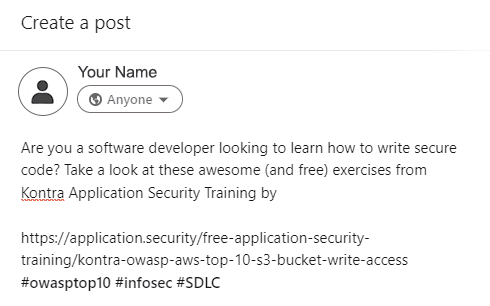The best business advice you will receive is to find a mentor. They can point you in the right direction, give you personalized advice and help you set up a plan of action after discussing career and personal goals. Any experienced person in an industry has the potential to be a mentor. Overall, having a mentor can change the trajectory of your career.
When finding a mentor, look for someone who is:
- Relevant to your industry
- Enthusiastic
- Empathetic
- Passionate
By expanding your circle to include a mentor, you can one day serve as a mentor to others who are hungry for knowledge. Your mentor can’t be found online. There is some legwork to be done in finding someone who is genuinely interested in your career.
Pick someone who is similar to you or who has followed the same path. People tend to have a particular fondness for mentees who remind them of themselves. A teacher can be a great mentor who will likely help long after the course ends.
Some potential mentors may beg off mentoring you if they don’t have time. What this could mean is they are not sure if the connection will be two-sided.
While you’re searching for your human mentor, download books, articles and anything else that piques your interest and speaks to your chosen industry.
There are pros and cons to using books as a mentor or guide when navigating your career. On one end, a great book can serve as a guide as long as you are aware of its strengths and limitations. A downside is most reading materials tend to be generic. Books also don’t have the human touch. Human mentors can give you the real scoop on how they really got successful. Most of the time, things like family connections or real hiring strategies aren’t meant for public consumption. Mentors can also intervene and promote you.
Finding a mentor online
Social media can help you find digital mentors. Identify potential mentors who have a career you would like. Get on someone’s radar by DMing them. Ask meaningful questions about their content in the comments. You can also join mentorship platforms, including MentorCruise and GrowthMentor. You can even go to standard platforms such as:
- Facebook (especially Facebook Groups)
- GitHub
Ask peers
People your own age can have quite a bit of experience. They might be in the trenches with you but have a different perspective. Peer-to-peer mentorship is valuable, especially when you don’t want to be stuck in tradition.
Sometimes someone else being mentored is willing to share secondary guidance. Observe and piece together what others are learning. Although this isn’t personalized, it can be beneficial, even if some advice can be misinterpreted. Learning from your peers can be a challenge as they don’t have the same life experience as their mentors.
Go to networking events
Networking can connect you to people in your industry. They may have the relevant knowledge, skills, experience, and connections you seek. The trick with networking is to think of it as a number game. Attend as many events as possible. See who is successful and copy them.
Trial and error
Trial and error can be a great mentor too, even if it takes a significant time investment and results in a few missteps. Not having a mentor can make you bolder. Without a guide, you will be open to new approaches. Some things will stick and others won’t. Expect some delays and frustrations. You can, however, become self-reliant, creating new experiences and making creative decisions.
Expanding your circle can be easier. Reach out to those in different professions and life stages to share their experience of life. You can discover some unofficial mentors this way. Quality people give quality advice. Success doesn’t make someone’s advice better quality. Quite a few sports coaches never played professionally. Someone who is totally different than you can guide you unexpectedly.
If you know how hard it is to find a mentor, you can mentor others. Your search can be the reason to help others. Rechannel hurt feelings into accessible mentorship to:
- Women in male-dominated industries
- Ethnic minorities
- Recent immigrants
- Children of immigrants
- People from lower-income backgrounds
- Anyone perceived as an outsider
Maximize The Benefits of Mentorship
Finding your mentor is half the battle. Figuring out how to maximize this connection is the other half.
- Design a goal: Map out what you want the outcome to be. This will help you focus on your priorities. Goals can help you gauge progress. No one wants their time wasted, so be respectful of your mentor’s time by coming equipped with what you want to accomplish or want help accomplishing. Review the last meeting’s notes, write a list of questions and set goals for your next meeting.
- Drive the conversation: Be specific in all questions and statements. Offer feedback when asked.
- Take criticism constructively: Criticism feels personal, but it isn’t. Feedback is part of the process. Not all of it will be positive. Being positive and receptive will make criticism easier to take while coming up with solutions.
- Speedier progress careerwise: Mentors can help you avoid common mistakes. Niches have many nuances a rookie wouldn’t be clued into. Mentors can show you the best path to take in the shortest amount of time possible.
- Bigger networking opportunities: Mentors can expand your network. Those who have been in the industry for a long time will have some valuable connections and can take you to coveted meetings.
- Polish your skills: In order to learn, someone has to teach you. Mentors can sharpen your strategizing skills and business manners.
- Widen your worldview: Careers can hit a plateau. This might be because you are not seeing the bigger picture and/or alternatives. Mentors can help you keep moving in an upward trajectory.
Conclusion
Mentorship can up your chances of success. You can master your professional skills and learn from a true expert. ThriveDX teachers can become lifelong mentors. Explore our world-class faculty at programs powered by ThriveDX.


